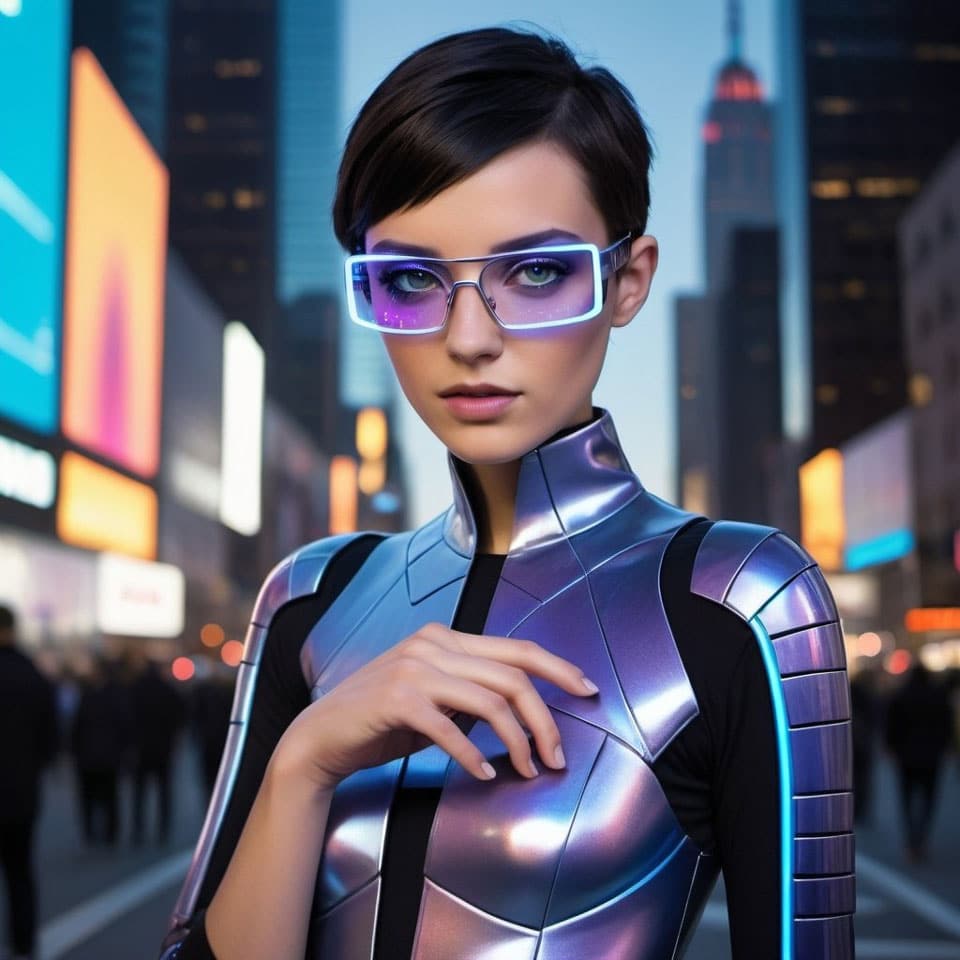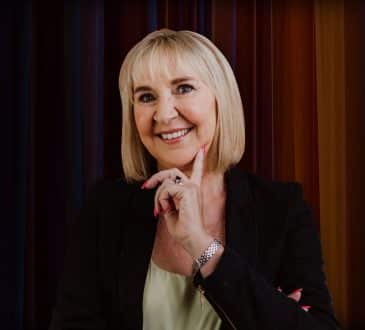AI will not kill creators. Lack of compensation and trust will

2030: A Data Odyssey. It’s a random morning, in 2030. The head designer’s avatar, powered by the latest large language model, has been sifting through all global and local fashion collections, across any brand, plus all of the ideas, sketches, social media posts, private conversations, videos and emails; all of that, since the Roman Empire, thanks to the famous Google Odyssey, the world largest database, looking for that new idea for a summer shirt, which needs to click with the community identifying themselves with the famous Berlin Alpha wave, but with the twist needed to appeal to the tribe in zip-code 10115, close to the old Wall.
The new design is created instantly by AI, and immediately airdropped to the first 1,000, the lucky ones to win the lottery, out of those who signed up to the brand workshop, with a snap of the fingers of their avatars. They also receive a fraction of a bitcoin for their ambassadorship. If they generate enough interactions, or ‘cool’ buzz, on Roblox, only ten shirts will be produced, and shipped to door, to the best performing ones. The brand designer did not manually draw anything yet, and her job is rather to interact with her fans digitally.
Once ‘a’ design is picked for production, by her, and distributed in a limited-edition physical drop, plus created en masse digitally, intellectual property rights and revenues are wired to fans and shareholders instantly, via blockchain, with the most exact calculations processed by quantum computers operating on people’s glasses, wearables or chips installed on their necks. Welcome to the future of fashion. ‘Let’s create’ will soon be replaced by ‘let’s ask AI’.
We are not creative. We are not getting paid.
AI will kill creativity and property rights. This is the most common adage, which I hear repeatedly. Guess what? We are not creative, as adults and professionals at least. Most of the stuff that we write online should not be protected by IP, including this article. The truth is we don’t even need ‘genius’ material to succeed in business, as much as we need differentiation and perfect execution. When we see genius or make something extraordinary for one of our brands, we should protect it, because it’s risky and transformational, no matter who (or what) does that. To be clear, protect equals pay for it, dearly, before even discussing IP rights.
In his latest work, ‘The Cost of Dull’, Adam Morgan shows how an ad featuring paint drying up performs much better than 85% of all ads out there. The same applies for a video of cows eating grass. Morgan tested his hypotheses, and recently presented his insights at the world-known Cannes Festival of Advertising, where the most creative people on the planet gather to talk about creativity and drink rosé.
The issue is gifted creators are not getting paid. Most interactions on social media are passive (liking stuff), and content tends to be non-original (reposts or retweets). Those who ‘create’ something new are not getting enough to make a living out of it. According to the Wall Street Journal, 48% of creator-earners made $15,000 or less last year, while just 13% of them made $100,000 or more.
The ability of AI to multiply creative experimentation will give us tools to boost our chances to engage with an audience, if we have something to say (prompt). What we really need is a system that allows us to track process and output of AI, while distributing incentives across the food chain. We have the tech stack now: it’s called blockchain and AI. Will AI disrupt jobs? Yes. Will AI change the way we create? Yes. Will AI change the way we interact digitally? Yes. So, if I run a fashion house, what do I do? Or, better, who am I going to be as a manager, a creator or a business leader?
Who are thou? Creativity is a way of operating, and it needs a business objective. The goal for any business, and society at large, when its powers are augmented by AI and other exponential technologies like blockchain, is threefold:
- Seek knowledge, like we did since the Enlightenment era, to solve people’s problems, always simply and efficiently, and sometimes with inspiration and delight, towards VIPs and super-fans.
- Create social capital, namely make sure that new knowledge and its benefits are shared as widely as possible, rewarding network actions and contributions, in line with people’s time and willingness to dance with a brand, via their network of family, friends and contacts.
- Always challenge the status quo, at least digitally (simulate multiple futures), as technological advances will make any business and profession fragile. AI will help us challenge what it just created, too.
Keep running data. It’s the least of your problems. Technology will make us more creative, better suited to identify and reward supporters, and better able to evolve what we do. What will the future look like? Ask AI, but ask the right questions, and check the answers, if you have a vision of what the world could be, know, share and dream. If you are short of ideas, ask AI, again. You will not find the ‘theory of everything’ by 2030. It would be enough to settle for new knowledge, broad access to it, and the urgency to get ready to change it all.
Now, there is a subtle and dangerous side of the question around machines vs. humans, which comes from the fact that we love the ‘work’ more than we love the ‘workers’ behind it. We should discuss how to pay ‘genius’, which is the people taking responsibility for a risky move, very often done also with the use of software. Creators do use coding and advanced tech tools today. Are we asking the question, because we can contemplate a scenario where we get rid of creative hands or finally control their rebel heads? Because, deep down, we don’t believe creativity has real impact on hard core business? Do we really want or need creativity spread all over our org chart? Are we hiddenly hoping AI will give us better intellectual output, on demand and virtually at zero cost?
Here is my take. AI will boost creativity, or at least improve the ‘here and now’, which is mostly dull. Genius and risky decisions will remain rare. Creators will survive, if we pay them and let them challenge status quo. They will continue to be the ones able to imagine a different future, inside and outside the company. Creativity shouldn’t be afraid of AI. It should fear humans, companies and boards, when they overpay CFOs and CEOs for their average management and sole focus on share price, and it should fear Big Tech, which will continue to extract value from the world’s best work.
Written by Francesco Pagano.
Have you read?
Countries Most in Debt to the International Monetary Fund (IMF).
Most Successful Unicorn Startups.
$100 Billion Club: Richest People With The 12-Figure Fortunes.
Largest electricity consumers in the world, by country (in terawatt-hours).
Countries that Export the Most Goods and Services.
Bring the best of the CEOWORLD magazine's global journalism to audiences in the United States and around the world. - Add CEOWORLD magazine to your Google News feed.
Follow CEOWORLD magazine headlines on: Google News, LinkedIn, Twitter, and Facebook.
Copyright 2025 The CEOWORLD magazine. All rights reserved. This material (and any extract from it) must not be copied, redistributed or placed on any website, without CEOWORLD magazine' prior written consent. For media queries, please contact: info@ceoworld.biz








